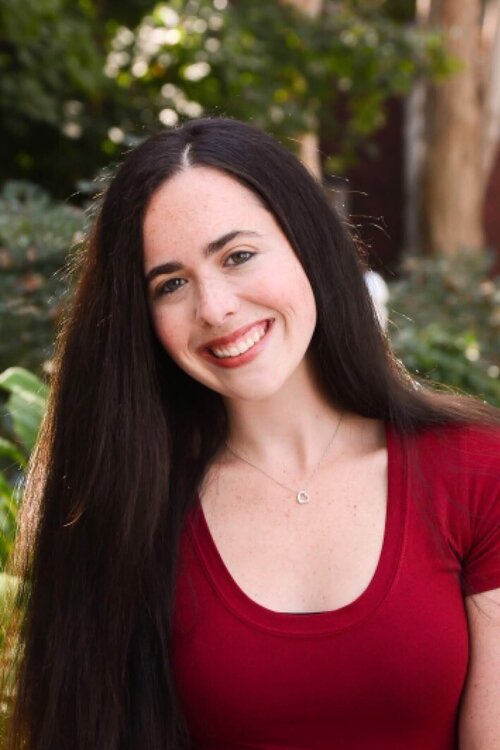Julia Shufro
JULIA SHUFRO (2020-2021)
I am a Master of Arts in Law and Diplomacy (MALD) Candidate at The Fletcher School (Class of 2024), with concentrations in International Negotiation and Conflict Resolution, as well as International Law. Additionally, I was the Exchange Student Representative for Fletcher at Sciences Po - the Paris School of International Affairs, where I studied coercive diplomacy and humanitarian law for Fall 2022. During my graduate studies, I was selected for Harvard Law School's Program on Negotiation, in which I gained advanced diplomatic negotiation skills. I was an undergraduate at Tufts University (Class of 2022), majoring in French and in History. On campus, I was the President of La Société Française, on the board of the Tufts Tap Ensemble, and an active member of the Tufts History Society. I participated in the EPIIC Class of 2019-2020: Preventing Genocide and Mass Atrocities, in which I immersed myself into the theory and practice of genocide studies and learned about the complexities of preventing mass atrocity crimes.
Currently, I am a UNA-USA Fellow working in Political Affairs at the United Nations (UN). I worked in the Department of Global Communications as a Congressional Attache in Washington, DC and now focus on biological weapons, nonproliferation, preventing atrocity, and humanitarian law at the Office of Disarmament Affairs at the UN in Geneva, Switzerland. Previously, I worked for the Department of State, in foreign service, focusing on public diplomacy and transitions to diplomatic postings. Additionally, I was an Oslo Scholar for the Human Rights Foundation’s Oslo Freedom Forum. With this program, I interned for the Ufolo Studies Center for Good Governance in Angola. There, I worked with Rafael Marques de Morais on civic engagement and human rights and nonviolence education for police officers.
My current research is about the war on terror and conflict resolution in the Sahel. Upon completion of my Master's thesis about the limitations of international law on terrorism and conflict in the Sahel, I will have regional expertise in francophone Africa. My past research pertains to the creation of an international court of environmental justice, the failure to prevent the Rohingya genocide in Rakhine State, Myanmar, and how to alter international policy to allow for greater intervention without the Security Council Veto. I have always loved the study of history and human rights, and I am passionate about cultural immersions, travel, and foreign languages. My most recent publication was an Op-ed about the coup in Myanmar and about an idealistic end to mass atrocity crimes ensuing there.
I believe in the potency of personal anecdotes in teaching tolerance, respect, and the courage to care. My goal as a future educator and humanitarian is to teach and inspire altruism and to understand the world around me to the best of my ability.
During my sophomore year at Tufts, I enrolled in ‘Education for Public Inquiry and International Citizenship (EPIIC): Preventing Genocide and Mass Atrocity.’ As a French and history double major at Tufts, I studied the Holocaust and contemporary genocides. I was intrigued by the laws and human rights obligations that guided the international community, but I never explored these principles at Tufts. EPIIC was my favorite class that I took at Tufts, and Heather Barry encouraged me to pursue genocide policy, human rights, and conflict resolution. After our symposium, she asked if I’d like to be connected with Sherman. Sherman and I had an immediate, and almost serendipitous, connection, and I began to intern for him at his virtual institute, The Trebuchet. As it turned out, my mother (Tufts/Jackson College Class of 1986) had known of Sherman from her time at Tufts: her friends had taken classes with the infamous Professor Teichman who wore a leather jacket and rode his motorcycle to the Hill. It felt like Sherman and I were meant to be connected!
I worked at The Trebuchet for a year, and, during that time, I planned international webinars, met with activists, and began a People’s Tribunal for Environmental Justice with Sherman's support. With his unyielding confidence in my abilities, I became a LEAP Fellow at the Liechtenstein Institute for Strategic Development, and my passions for human rights and peacebuilding only escalated. Sherman taught me to follow my passions, to be excited about learning, and, ultimately, about the power of altruism. I know that Sherman is always thinking of me, and I feel so appreciative to have a friend and mentor such as him in my life.

